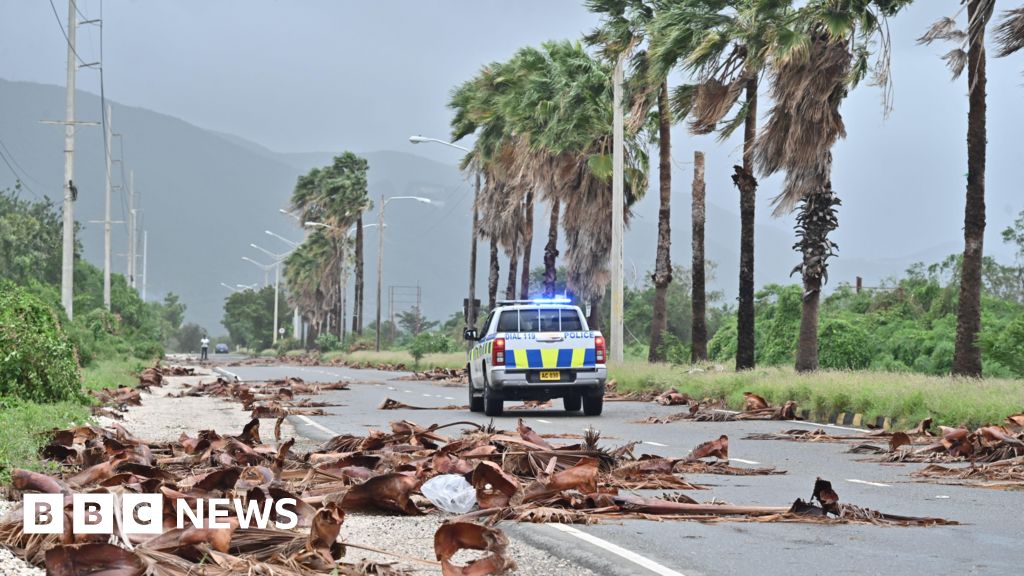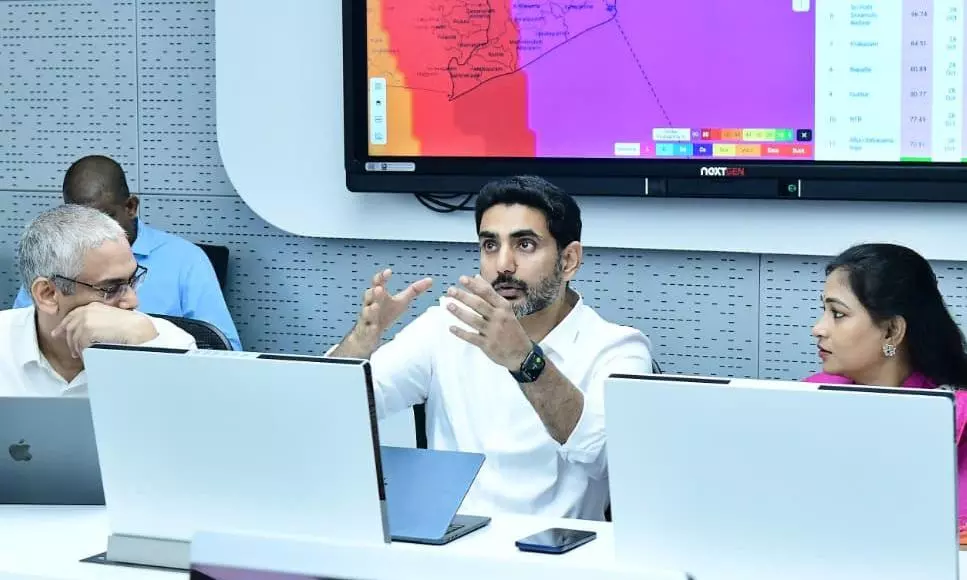Copyright bbc

On the north coast, Montego Bay - the heart of Jamaica's tourism industry and home to its main airport - will also take time to get back on its feet. This hurricane has put a hand around the neck of the Jamaican economy. Montego city was split in two by floodwaters, Mayor Vernon said. He told BBC Breakfast: "Once the wind subsided, we started to get a lot of heavy rain and that has led to massive floods right across the city. One side of the city is now cut off from the other due to roads being inundated by flood water." His immediate concern, he added, was simple: "Check if everybody is alive." In rural Jamaica, the storm has left people shaken. Tamisha Lee, president of the Jamaica Network of Rural Women Producers, said: "Right now, what I'm seeing is heavy rain, powerful wind, a lot of things flying all over the place, and trees uprooted. There is no electricity. I am feeling anxious and tense. The damage will be enormous." Meteorologists said Hurricane Melissa intensified at a speed rarely seen, its rapid strengthening fuelled by abnormally warm Caribbean waters - part of a broader trend linked to climate change. By the time it struck Jamaica, the storm had reached Category 5 strength, with gusts fierce enough to tear roofs from concrete homes, uproot trees and snap power poles. Health officials even issued a crocodile warning, cautioning that floodwaters could drive the reptiles into residential areas. For thousands of tourists caught on the island, the storm brought terror and uncertainty.



